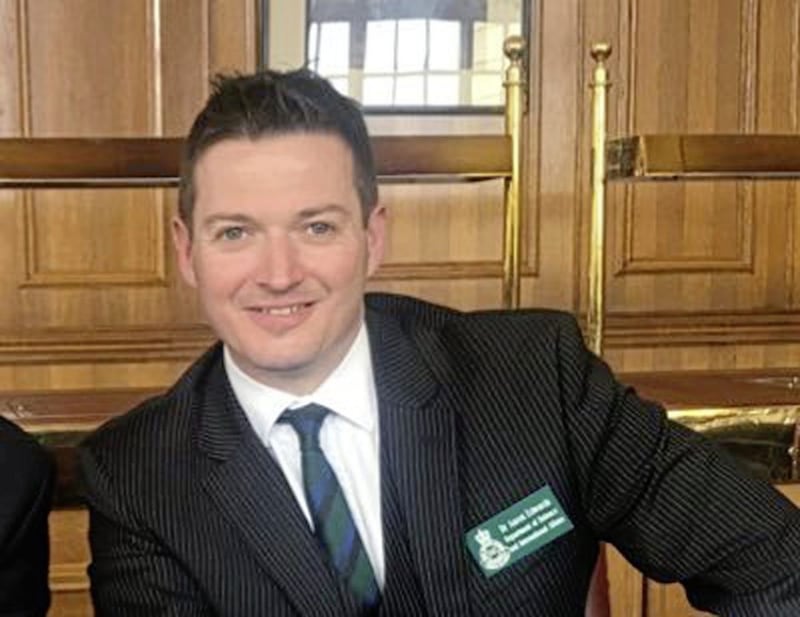A former leader of the PUP has claimed loyalist paramilitary groups are “waiting on a time when they may be called upon”.
Brian Ervine, who led the UVF -linked political party more than a decade ago, has also questioned whether loyalist groups have any confidence in the British government.
His comments came ahead of the 30th anniversary of the Combined Loyalist Military Command 1994 ceasefire, which falls on Sunday.
Earlier this week a loyalist think-tank produced a report urging loyalist paramilitary groups to move towards disbandment.

The report, Reframing the Debate: ending loyalist paramilitarism makes 10 recommendations and calls for a “collective public commitment” from the UVF, UDA and Red Hand Commando (RHC) that they “no longer exist as paramilitary organisations”.
Earlier this week the Loyalist Communities Council (LCC), which represents all three paramilitary groups, met with DUP communities minister Gordon Lyons.
That meeting followed a similar sit down with education minister Paul Givan in recent weeks.
Mr Ervine questioned whether loyalists have “any trust in government anymore?”
The former PUP leader also suggested loyalist groups remain poised for a return to violence.
“This means we are going to have these paramilitary groups continue in the background waiting on a time when they may be called upon,” he told the BBC.

Dr Aaron Edwards, author of ‘UVF: Behind the Mask’, said loyalist paramilitary structures remain intact.
“The idea that loyalist paramilitarism is at an end is a fiction and, in fact, it’s much more uneven in terms of the conflict transformation that is taking place,” he said.
“And for the LCC to claim that the groups that they represent have virtually completed their conflict transformation, I think, is not accurate.”
While the LCC represents the main loyalist paramilitary groups, several significant factions are not aligned to it, including the South East Antrim UDA and units in north Antrim.
“The LCC do not represent the complete ecosystem of loyalist paramilitarism,” Dr Edwards said.
“And even if they could bring along, as some sources have complained, 80 percent of their respective organisations, if a transition process was to be put in place that finally disbanded them, I don’t think they could deliver on that,” he said.
“Because, as I say it’s very uneven, there are sub-groups out there that are much stronger than some of the more politically orientated ones that we hear a lot of noise from.”
The SDLP has tabled a ‘tackling paramilitarism’ motion, which will be debated at Stormont next week.
Opposition leader Matthew O’Toole said: “It is important to differentiate between conversations aimed at clear and unambiguous timelines for the complete phasing out of these organisations, and the kind of open-ended legitimisation of paramilitary structures which we have witnessed.
“We need loyalist communities to thrive, that means liberating them from the oppressive force of organisations which seek to control or simply make money from them.
“Our Opposition motion next week offers a clear opportunity to build consensus around breaking the power of paramilitary groups once and for all.”








